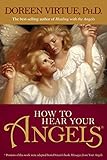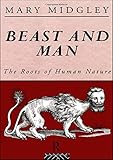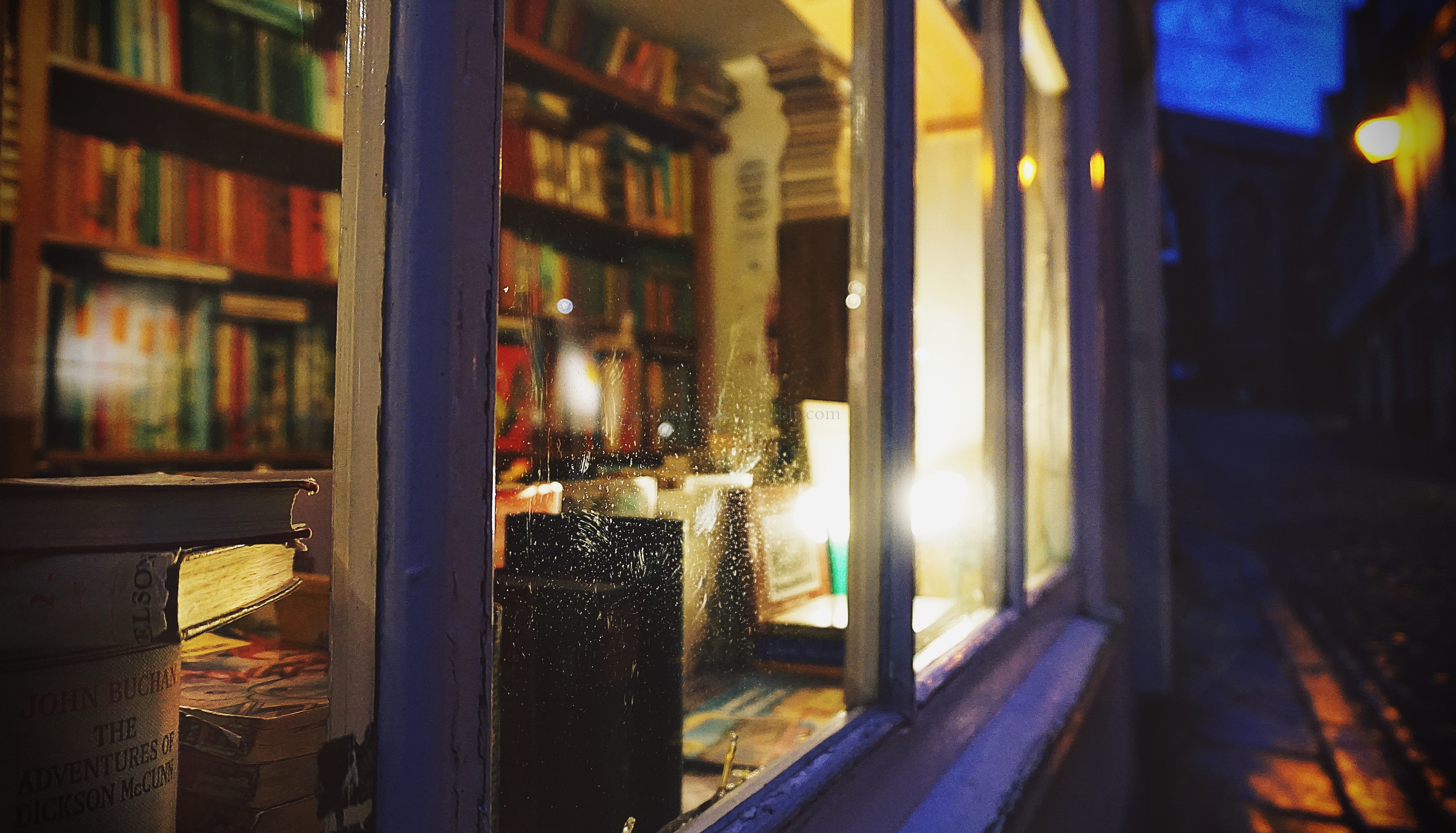Cultural anxieties are currently running high about the future of the book as a physical object, and about the immediate prospects for survival of actual brick and mortar booksellers. When most people think about the (by now very real) possibility of the retail side of the book business disappearing entirely into the online ether, they mostly tend to focus on the idea of their favorite bookshops shutting their doors for the last time. Sub-Borgesian bibliomaniac that I am (or, if you prefer, pathetic nerd), I have a mental image of the perfect bookshop that I hold in my mind. It’s a sort of Platonic ideal of the retail environment, a perfect confluence of impeccable curation and expansive selection, artfully cluttered and with the kind of quietly hospitable ambiance that makes the passage of time seem irrelevant once you start in on browsing the shelves. For me, the actual place that comes closest to embodying this ideal is the London Review Bookshop in Bloomsbury, run by the people behind the London Review of Books. It’s a beautifully laid-out space in a beautiful building, and its selection of books makes it feel less like an actual shop than the personal library of some extremely wealthy and exceptionally well-read individual. It’s the kind of place, in other words, where you don’t so much want to buy half the books in the shop as buy the shop itself, move in straight away and start living in it. The notion that places like this might no longer exist in a decade or so is depressing beyond measure.
But I don’t live in Bloomsbury, or anywhere near it. I live in a suburb of Dublin where the only bookshop within any kind of plausible walking distance is a small and frankly feeble set-up on the second floor of a grim 1970s-era shopping center, above a large supermarket. It’s flanked by two equally moribund concerns, a small record store and a travel agent, thereby forming the centerpiece of a sad triptych of retail obsolescence. It’s one of those places that makes you wonder how it manages to survive at all. It has a rack of greeting cards, carries a small selection of stationery sundries, and its “Mind, Body and Soul” section — mostly books on stuff like dream interpretation and angel husbandry — is slightly larger than its Classics section, which is really just a couple of desultory shelves with a few Dickenses and Austens and maybe a Brontë or two. It’s not a good bookshop, in other words. It is, in fact, a pretty terrible bookshop.


 But I have an odd fondness for it anyway, and I’ll occasionally just wander up there in order to get out of the apartment, or to see whether, through some fluke convergence of whim and circumstance, they have something I might actually want to buy. I’ve often bought books there that I would never have thought to pick up in a better bookshop, gravitating toward them purely by virtue of the fact that there’s nothing else remotely interesting to be had. I bought a copy of Jared Diamond’s Guns, Germs, and Steel there, for instance, a book I would probably not have thought to look for in a larger, more lavishly stocked place. I also found, in the aforementioned “Mind, Body and Soul” section a few years ago, a copy of the philosopher Mary Midgley’s Beast and Man, slotted between How to Hear Your Angels and How to See Your Angels. I bought it because it was a work of serious philosophy on an interesting topic, surrounded on all sides by dewy-eyed spiritualist nonsense and self-help snake oil. I think I may have felt a little sorry for it, having to keep such poor company, and felt morally obligated to give it a proper home. It’s a fascinating book which has had a lasting influence on the way I think about the relationship between humanity and nature, and chances are I wouldn’t have read it if I lived within walking distance of Bloomsbury. I’ve also bought a few novels there which, being classics that pretty much every bookshop in the world has copies of, probably would not have caught my eye elsewhere. If you’re a compulsive book buyer, in other words, and there’s nothing worth looking at except a ropey-looking paperback of Madame Bovary, you might end up realizing that it’s completely unacceptable that you’ve never read it, and you might then take it with you to the counter and onward toward a future in which you’re slightly better read.
But I have an odd fondness for it anyway, and I’ll occasionally just wander up there in order to get out of the apartment, or to see whether, through some fluke convergence of whim and circumstance, they have something I might actually want to buy. I’ve often bought books there that I would never have thought to pick up in a better bookshop, gravitating toward them purely by virtue of the fact that there’s nothing else remotely interesting to be had. I bought a copy of Jared Diamond’s Guns, Germs, and Steel there, for instance, a book I would probably not have thought to look for in a larger, more lavishly stocked place. I also found, in the aforementioned “Mind, Body and Soul” section a few years ago, a copy of the philosopher Mary Midgley’s Beast and Man, slotted between How to Hear Your Angels and How to See Your Angels. I bought it because it was a work of serious philosophy on an interesting topic, surrounded on all sides by dewy-eyed spiritualist nonsense and self-help snake oil. I think I may have felt a little sorry for it, having to keep such poor company, and felt morally obligated to give it a proper home. It’s a fascinating book which has had a lasting influence on the way I think about the relationship between humanity and nature, and chances are I wouldn’t have read it if I lived within walking distance of Bloomsbury. I’ve also bought a few novels there which, being classics that pretty much every bookshop in the world has copies of, probably would not have caught my eye elsewhere. If you’re a compulsive book buyer, in other words, and there’s nothing worth looking at except a ropey-looking paperback of Madame Bovary, you might end up realizing that it’s completely unacceptable that you’ve never read it, and you might then take it with you to the counter and onward toward a future in which you’re slightly better read.
And this brings me to the point I want to make about bad bookshops, which is that they’re rarely actually as bad as they seem. In a narrow and counterintuitive sense, they’re sometimes better than good bookshops. The way I see it, there are three basic categories of retail bookseller. There’s the vast warehouse that has absolutely everything you could possibly think of (Strand Bookstore in New York’s East Village, for instance, is a fairly extreme representative of this group, or at least it was the last time I was there ten years ago). Then there’s the “boutique” bookshop, where you get a sense of a strong curatorial presence behind the scenes, and which seems to cater for some aspirational ideal of your better intellectual self. The London Review Bookshop is, for me at least, the ultimate instance of this. And then there’s the third — and by far the largest — category, which is the rubbish bookshop. There are lots of subgenii to this grouping. The suburban shopping center fiasco, as discussed above. The chain outlet crammed with celebrity biographies and supernatural teen romances. The opportunistic fly-by-night operation that takes advantage of some short-term lease opening to sell off a random selection of remaindered titles at low prices before shutting down and moving elsewhere. And, of course, the airport bookshop of last resort.
I have a slightly perverse fondness for these sub-par emporia, because they have often been the places where I have been forced to stray furthest outside of my usual buying patterns. Sometimes the situation in which our options are most narrowed is the one which ends up most widening our horizons. As great as it is to be able to choose whatever you want on Amazon, sometimes what you really want is to have no choice at all. Which is another way of saying, perhaps, that maybe there is really no such thing as a bad bookshop.
Image Credit: Suzy Hazelwood.









